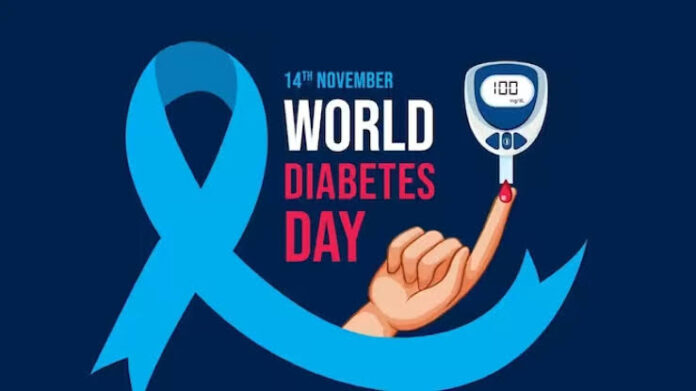Today marks World Diabetes Day (WDD), a global awareness campaign that brings millions of people together worldwide, to raise awareness about diabetes and its impact on individuals, families, and communities.
The theme for this year 2024 awareness, “Breaking Barriers, Bridging Gaps” highlights the commitment of the World Health Organization (WH0) and the International Diabetes Federation (IDF) to lessening the risk of diabetes and ensuring that everyone with the disease has access to high quality care.
Diabetes is a chronic disease that affects the regulation of blood sugar levels in the body. When the pancreas doesn’t produce enough insulin or can’t effectively use the insulin it produces, blood sugar levels rise, leading to a range of serious health issues.
There are three main types of diabetes:
Type 1 Diabetes: Also known as insulin-dependent diabetes, is characterized by the pancreas’s inability to produce insulin.
Type 2 Diabetes: This type is caused by the ineffective use of insulin by the body, often resulting from excess weight and physical inactivity.
Gestational Diabetes: This type develops during pregnancy.
Living with diabetes can be challenging, as it is not just about managing blood sugar levels. The condition affects every aspect of life, from daily routines to long-term plans.
Research shows that 77% of people with diabetes experience anxiety, depression, or other mental health conditions due to their condition. Moreover, 4 in 5 people with diabetes experience diabetes burnout, feeling overwhelmed and exhausted from managing their condition.
Can diabetes be managed?
While there’s no cure, a combination of healthy lifestyle choices and medical treatment can help control blood sugar levels and prevent complications.
Healthy Lifestyle Choices And Medical Treatment.
Eating balanced diet: Focus on whole, unprocessed foods like vegetables, fruits, and whole grains.
Staying physically active: Aim for at least 150 minutes of moderate-intensity exercise or 75 minutes of vigorous-intensity exercise per week.
Maintaining a healthy weight: Excess weight increases the risk of developing type 2 diabetes.
Taking Medication: Oral medications or insulin therapy can help regulate blood sugar levels.
Regular screening: Monitor blood sugar levels, blood pressure, and cholesterol levels.
We can create a world where people with diabetes can thrive, not just survive by working together. Putting well-being at the heart of diabetes care will start the change for a better diabetes life.








